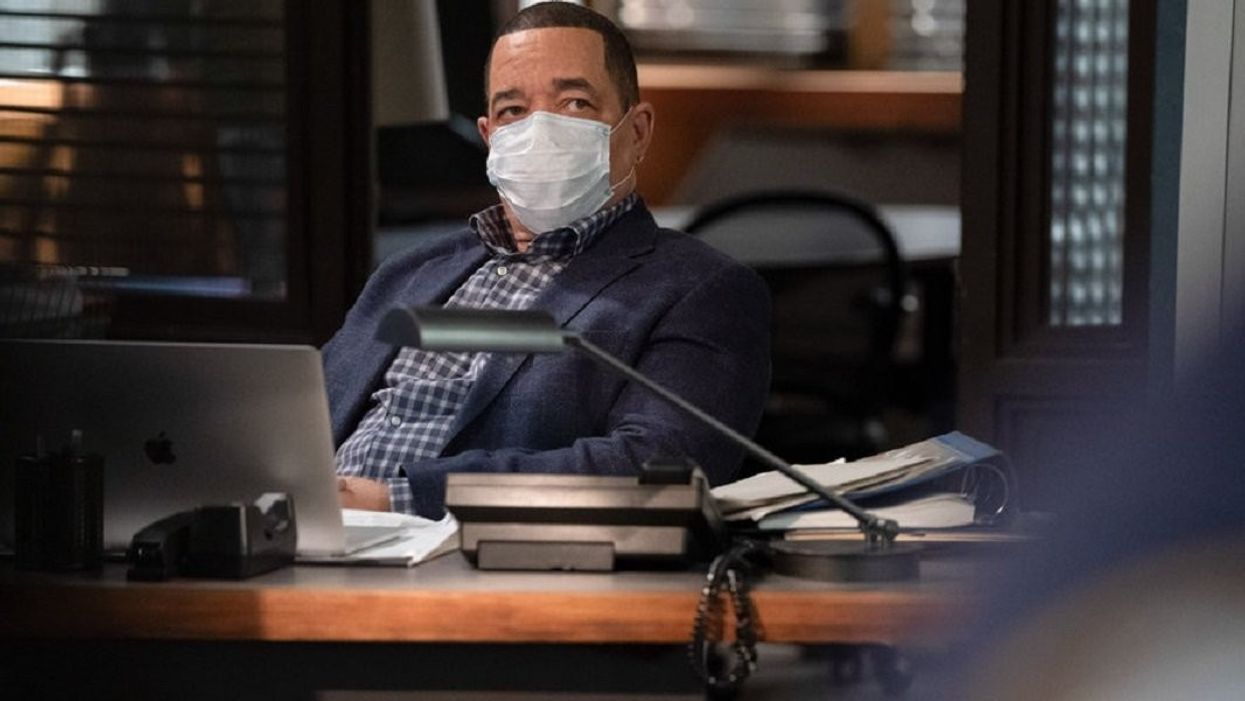Should TV Shows Address the Pandemic When They Return?
Got that pandemic for ya!

The last 18 months have been incredibly hard for people across the globe, but things are getting better. Just last week I was able to see my family for the first time since 2019, and vaccines are slowly rolling out all over the world.
As TV writers' rooms reconvene, the big question on everyone's mind is the same: how do we address the pandemic?
No, I'm not talking about the drugs from The Wire, I'm talking about the COVID-19 pandemic that ruined our 2020. Showrunners and networks are all trying to figure out if the characters in their shows should have been locked up for all of 2020 or maybe just should never mention it.
Still, the lockdown was such a momentous moment in our lives. It changed and shaped a lot of different people, including a generation of young people who were cut off for a long time from normalcy.
Recently, the Los Angeles Times sat down with a bunch of people who work in TV to figure out how they'll handle this feat.
Courtney Lilly, showrunner of Black-ish, said, “We knew we would have to comment and address it in some way. We assumed that by the time we got to September or October we’d be in a different place—but then things started going viral again in December, and we were surprised in a negative way. We were disappointed that something we’d done months ago would still be relevant—was actually too relevant.”
So how do you tackle a world that's so relevant? A lot has to do with the world of the show you're on.
Does it take place in the here and now, or is it more of a fantasy? Think about some like the world of Law & Order. They pride themselves on telling stories that happen in our world. So COVID probably would exist within that show.
Law & Order: Organized Crime showrunner Ilene Chaiken said, “You have to calibrate how much is too much. Even if we weren’t telling a story that revolved around COVID, [the virus] would still exist on the show. We’re grounded in the real world, the world of current events.”
Think about a show that ended this year, Superstore, and how they felt a responsibility to tell COVID stories. After all, the people who inspired their show were dealing with this stuff every day. Executive producers Gabe Miller and Jonathan Green knew they owed the story that much honesty.
“One benefit is that we’re set in a store and not a hospital, so we could explore what COVID meant to these people’s work lives without seeing the worst side of the virus,” said Miller. “We could also present themes like how corporate presents itself as caring about workers and celebrates people like our characters as heroes—but doesn’t protect them.”
But what about medical shows? Grey’s Anatomy showrunner Krista Vernoff said, “The news and social media provides a constant barrage of pain that can leave us numb and depressed. What we did was provide an opportunity to focus on one story, on one character, one victory or one loss to give you time and permission to feel it.”
One of the most positive depictions of the struggle came from Apple TV's Mythic Quest. This comedy took the pandemic head-on with heartfelt and emotional looks at what it meant to be apart. Creator/star Rob McElhenney said, “We wanted to have an optimistic future. We literally do not say COVID the entire [second] season. We felt if we were going to project into a future where we put it all behind us, we’d do this [return-to-work] episode and close the door on the issue.”
There are obviously lots of different opinions on how and when to address it. It's hard because I think so much of the audience wants to move on from the tragedy, but with COVID changing so many of us, it's hard to think about how it wouldn't have affected the characters in our shows.
As a viewer, my only hope is that we don't belabor the topic forever. If this ends and we are done with masks, I think we can see the worlds inside our TV shows get back to normal as well. There's truly no right answer, but it feels good to be almost back to normal and to be worrying about stuff like this, and not so much the pandemic.

 Susanavia Sundance Institute
Susanavia Sundance Institute Susanavia Sundance Institute
Susanavia Sundance Institute Susanavia Sundance Institute
Susanavia Sundance Institute









